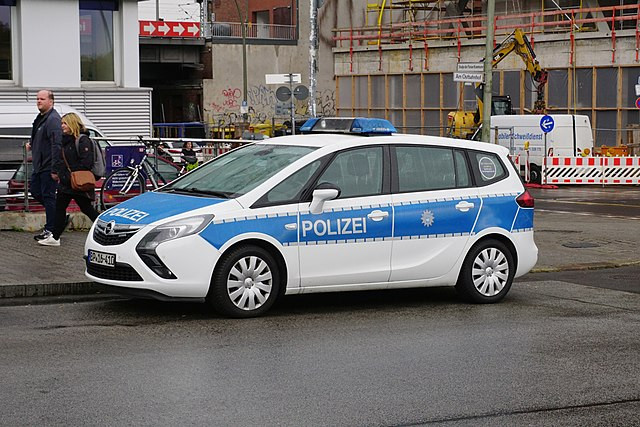The Islamic State group has claimed responsibility for a deadly knife attack that occurred on Friday in the western German city of Solingen, resulting in the tragic deaths of three people and injuries to eight others. The militant group announced through its Telegram channel that the attack was carried out by one of its members "in revenge for Muslims in Palestine and everywhere." However, the group did not provide any evidence to support its assertion, and the extent of the relationship between the attacker and the Islamic State remains unclear.
The horrifying incident took place in the Fronhof, a bustling market square in Solingen, where live bands were performing as part of a festival celebrating the city's 650th anniversary. The attack has left the community in shock, transforming what was meant to be a joyful occasion into a scene of tragedy.
German authorities swiftly launched a manhunt to apprehend the assailant, who remains at large. In a significant development, police arrested a 15-year-old boy in connection with the attack. Although the boy is not the perpetrator, he is suspected of having prior knowledge of the attack and failing to inform authorities. Prosecutor Markus Caspers revealed that the arrest followed a tip from two female witnesses who reported overhearing a conversation between the boy and an unknown person discussing plans that aligned with the subsequent attack.
As investigations continue, authorities are increasingly considering the possibility of a terrorist motive. Caspers noted that there is no other apparent motive for the attack and that the assailant did not appear to know the victims. The victims, who were targeted as they enjoyed the festival, included two men aged 67 and 56, and a 56-year-old woman. Authorities have indicated that the attacker deliberately aimed for the victims' throats, highlighting the brutal nature of the assault.
The aftermath of the attack has left the city of Solingen reeling. On Saturday, the market square was cordoned off by police as passers-by laid candles and flowers in memory of the victims. Chancellor Olaf Scholz expressed his deep shock over the incident, describing it as a "terrible event" and calling for the perpetrator to be swiftly brought to justice. "An attacker has brutally killed several people... The perpetrator must be quickly caught and punished to the fullest extent of the law," Scholz wrote on X, formerly known as Twitter.
Solingen's mayor, Tim Kurzbach, echoed these sentiments, expressing the collective grief and disbelief of the city's residents. "Tonight we are all in Solingen in shock, fright and great sadness," Kurzbach wrote in a social media post. "We all wanted to celebrate our city anniversary together, and now we have to mourn the dead and injured. It breaks my heart that there was an assassination attack on our town."
While violent incidents of this nature are relatively uncommon in Germany, this attack has raised concerns about public safety, particularly in light of similar incidents in recent months. In May, an Afghan migrant went on a stabbing spree in Mannheim, wounding several people, including a police officer who later died. The recent wave of violence comes at a politically sensitive time, with state elections scheduled next month in Thuringia, Saxony, and Brandenburg.
The right-wing party Alternative for Germany (AfD), known for its strong stance against immigration, has seized upon the attack to advance its political agenda. Bjoern Hoecke, a top AfD candidate, took to social media to criticize the country's multicultural policies, asking, "Do you really want to get used to this? Free yourselves and end this insanity of forced multiculturalism."




